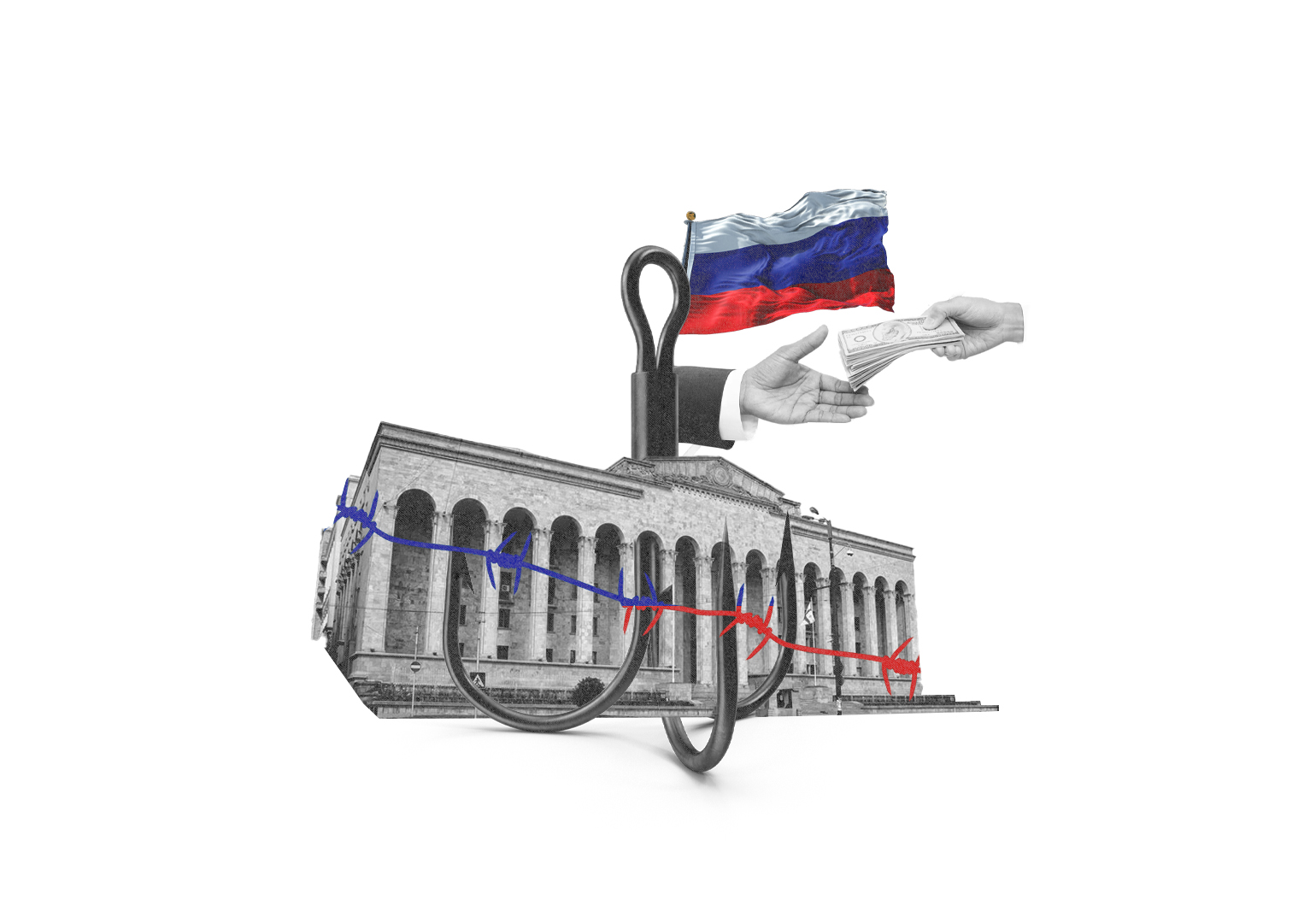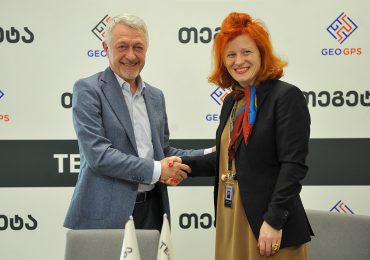Since coming to power, ‘Georgian Dream’ has repeatedly denied that trade with Russia would increase Georgia’s economic and political dependence on the “enemy” country. In a recent interview with Palitra News, Speaker of the Parliament Shalva Papuashvili stated, “Georgia is an open economy that does not impose trade preferences and regulations.” He explained this position as follows:
“In an open and free economy, businesses will always find markets where they can sell their products at a higher price or import them cheaper. That is the main principle of a market economy. If we look at the picture today, we will see that demand for Russian flour and fuel has increased. Why? Because businesses buy these products cheaper in Russia. Businesses make their own decisions; the state does not interfere in anything. If a business finds cheaper flour in Turkey, it will buy Turkish flour.”
Papuashvili did not say anything about the fact that the existence of a “free economy” does not exclude the use of economic levers for political purposes by a hostile country. However, there are numerous such examples in the world.
We do not have to look far. Russia actively exerted economic pressure on Georgia after the ‘Rose Revolution’ to achieve political goals. It seems that many of us in Georgia need to be reminded of recent history. I will, therefore, start by recalling the events of the last two decades before shifting the focus to the current alarming situation – the Russian economic trap.
Unhappy about the ‘Rose Revolution’ and Georgia’s exit from the CIS, the Kremlin struck the first blow against the Georgian economy by raising the price of natural gas. In 2004-2006, the cost of Russian gas in Georgia increased fivefold. By 2007, Georgia was spending $300 million, or 10% of its state budget, on gas imports.
Russia went even further. On 22 January 2006, a section of the Gazprom pipeline in the North Caucasus exploded under suspicious circumstances. Several days earlier, gas deliveries to Ukraine were also halted. Fortunately, in 2008 Georgia was able to replace Russian gas with Azerbaijani gas quickly. However, the Kremlin’s vindictiveness was not limited to the energy sector. Major Georgian agricultural products were placed under embargo, starting with the ban on the import of Georgian wine for “health and safety reasons” in March 2006. It should be noted that wine accounted for 10% of Georgia’s total exports in 2005, meaning that it was ten times more valuable to our economy than to France or Italy. A couple of months later, the Kremlin also banned the sale of two Georgian brands of mineral water in Russia.
In June 2006, around 2,300 Georgians were deported from Russia. They were herded onto cargo planes and flown to Tbilisi. Three Georgians were killed because of police raids on migrant workers, while a heavily pregnant woman suffered a miscarriage. The European Court in Strasbourg would later rule that Russia had violated people’s human rights during the deportations and ordered Moscow to pay compensation.
In October 2006, Russian sanctions on Georgia were extended to the transport sector. This move was preceded by the arrest and deportation of four Russian officers accused of being spies. As a result, all air, rail, ground, and sea connections ceased between the two countries, together with the postal service. Thus, the Georgian economy suffered another painful blow.
Despite the sanctions on Georgian citizens and the country’s economy, ‘Georgian Dream’ expressed its desire to restore economic relations with Russia soon after coming to power in 2012. Indeed, Moscow reopened the Russian market to our goods in 2013. Since then, Russian-Georgian economic ties have been developing steadily (except for the Russian ban on direct flights to Georgia in 2019).
As of 2023, the trend of Georgia’s economic dependence on Russia can be described as alarming. Based on data from GeoStat, the National Tourism Administration and the National Bank of Georgia, Irakli Svanidze, a graduate student at the Caucasus University School of Management, analyzed the growing economic dependence of Georgia on Russia. I will briefly summarize the results of the study below.
The data shows that by the end of 2022, the share of Georgian exports to Russia was 11.7% of total Georgian exports. Before the pandemic, this figure was closer to 14%. As for imports, based on last year’s data, goods imported from Russia accounted for about 14% of total imports. Russia is now second on the list of Georgia’s largest importers, behind Turkey.
Dependence on Russia is particularly evident in the case of certain products that are critically important for the economy. According to 2022 GeoStat data, approximately 95% of Georgia’s wheat imports and 98% of its wheat flour imports are from Russia. As for Russian oil, it accounts for about 55% of all oil imports. In light of these figures, it is easy to imagine what would happen if Russia were to place a wheat and oil embargo on us in the future.
On top of everything else, the dependence of Georgia’s tourism sector on Russia is also growing. According to the 2022 Georgian National Tourism Administration statistics, Russia tops the list of visitor countries, accounting for 20% of all visitors to Georgia. It is worth noting that this figure was also substantial before the invasion of Ukraine. For example, in 2018-2019, Russians accounted for 16% of all foreign visitors to Georgia.
We have no reason to believe that Georgia’s economic dependence on Russia will decrease in the future. On the contrary, following the imposition of sanctions by Western countries, the Kremlin is likely to expand its economic relations with developing countries. Thus, Georgia’s economic dependence on Russia will increase even more in the coming years.
Georgia’s growing economic dependence on Russia will complicate any peaceful change of government in our country. Moreover, even if an anti-Russian government were to come to power, it would be difficult to break the strong economic ties with Russia immediately. The Kremlin knows this very well. It is also understood by the government of Georgia, which prefers to act within its own narrow interests, harming the country’s and the population’s interests as a result.
Considering the above, Papuashvili’s rhetoric about a “free economy” only serves to achieve the opposite goal, encouraging a non-free economy and non-democratic processes. If we take this bait, we will fall increasingly into the Russian trap.

















